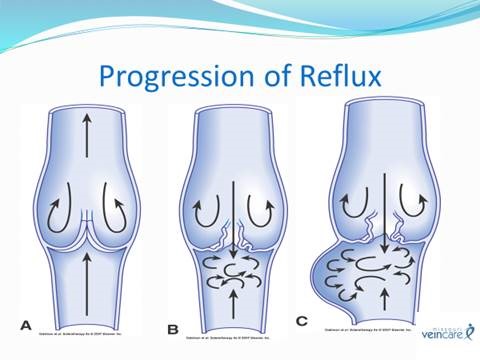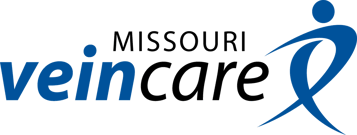Are Vein Conditions Hereditary?

Dealing with any kind of vein condition can be frustrating, to say the least. There are the physical challenges it creates - leg aching, swelling - but there are also the mental and emotional challenges that often accompany a vein condition - the frustration of mental fatigue, the hopelessness from struggling to do the things you used to be able to do, and for some, the shame of unsightly leg veins. I hear patients all the time asking if there was something they could have done to prevent it. While there are habits and lifestyle choices that will reduce the symptoms, the "reason why" is beyond your control.
You may know of a family member who has struggled with a vein condition and is wondering if you will inherit the same condition. Ultimately, the presence of a vein condition is due to vein reflux - the abnormal stretching of the vein walls which causes the vein valves to fail - and is highly inheritable. While the reality is that you can't change your genetic line, there are treatments and self-care steps you can take to improve your symptoms. First, we will go over briefly what exactly a vein reflux condition is:
What is Vein Reflux?
Vein reflux is a medical term that indicates blood flow is going in the wrong direction. Veins are one-way pathways that transport the blood back to the heart against gravity. How does that work - the calf muscle pump. Each vein has a system of valves that keep blood flowing in one direction back to the heart. When these valves stop working, the blood pools in the lower legs.

In the video below, I go into detail on how genetics can play a role in whether or not you will develop a vein condition.
How Much Do Genetics Really Play a Role in Vein Reflux?
So if you do have a vein reflux condition, there is usually someone in the family who has a vein condition as well. About 90% of people who do have a vein reflux condition, have inherited it from a family member. And this doesn't have to be inherited from a parent or immediate family member. It could be an aunt, uncle, or grandparent.
Other Factors That Can Lead to Vein Reflux
While genes may play a role in whether or not your struggle or will struggle with a vein reflux condition, they are not the only factors to consider. Other risk factors for vein reflux include:
- Obesity (the large abdomen compresses the veins and reduces blood flow from the legs)
- Long periods of standing or sitting (anyone can get reflux if they stand in one place long enough)
- Hormonal changes (during the menstrual cycle and during pregnancy)
- Gender (female hormones make women more prone)
- Age (tissues and veins loosen up and get stretched as we age)
- Vein trauma (like a softball or baseball sports injury)
- Deep vein thrombosis (can cause reflux in the deep vein system)
And most vein conditions are, in fact, not visible, so it is important to reach out to a vein specialist if you do know that vein conditions run in your family. While you can’t do much to change your family tree, there are preventative measures and healthy habits you can adopt that will help improve your vein condition, particularly if your family history is working against you.
Effective Treatment Options for Vein Reflux
Compression stockings, leg elevation, and frequent leg movement can reduce symptoms by helping the valves work better to move the blood out of the legs and back to the heart.
- Compression stockings help "squeeze" vein walls together, closing the gap in the valves, so they can then return the blood to the heart.
- Elevating your legs helps get pooled blood flowing back out of the legs and relieves the pressure and swelling in your legs.
- Physical movement and activity, even if it is a short, less than a 5-minute walk, every hour or so, can really help improve blood flow in your leg muscles.
While all of these methods do offer relief, they are not permanent solutions for vein reflux. For people that have significant symptoms and their life is compromised...treatments really help. When you find that you can't do the activities you used to be able to do and have to slow down at home or at work, a free vein screening can really help sort things out.
An initial screening is free and easy. Our team will ask about your story and review your symptoms, and most importantly evaluate the pattern of your symptoms which might indicate a vein condition.


